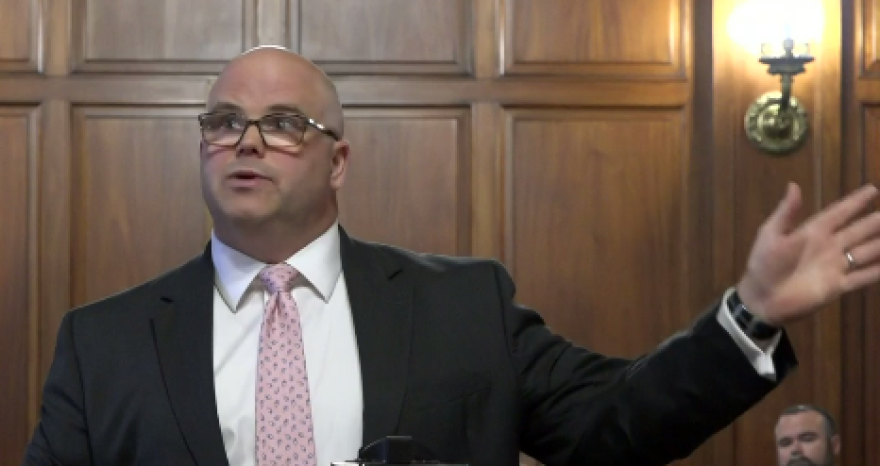RUSSELL COLEMAN V. JEFFERSON COUNTY BOARD OF EDUCATION
Is the Kentucky General Assembly unfairly targeting the Louisville school system? That question is currently being weighed by the state Supreme Court.
Parts of Senate Bill 1 would place new limitations on school boards in county school districts where there is a consolidated local government. But the law — as currently written — would only apply in one district: Jefferson County. And JCPS says that runs afoul of constitutional rules prohibiting special and local legislation.
Matt Kuhn with the Kentucky Attorney General's Office said the language only creates an open class where the new school board restrictions would apply, and it could expand to other communities.
"If a city or a county gets to a certain population level and wants to become a first class city, they can under Kentucky law. if they want to consolidate with their county, they can under Kentucky law. And if they do that, they would be immediately subject to Senate Bill 1," Kuhn argued.
But David Tachau, who is representing the Jefferson County Board of Education, said the claim that the bill's open language means Louisville isn't being singled out ignores the de facto effect of how the law would actually apply today.
"The Attorney General is arguing that these sections of Senate Bill 1are okay if they might someday in the future, somehow, some way, apply to some other individual locale," he said.
Several justices who spoke appeared skeptical of the AG's argument, with Angela McCormick Bisig asked, "What would be the distinctive and natural reason for treating a county with a consolidated local government differently?"
Another justice questioned whether a ruling against Senate Bill 1 could potentially restrain the state's ability to govern its most populous community in other ways.
The court was also curious about the AG's argument that the opposing party doesn't have standing to bring the case because they only named the Kentucky Education Commissioner in their filing. The commissioner, Kuhn argued, doesn't have enforcement power, only referral power in this case.
Were the bill to take effect, it would require a two-thirds majority vote from board members to adopt new policies, limit how often they could meet, and place more power in the hands of the superintendent.
UPDATE 8/15: Attorney General Russell Coleman released this statement Wednesday: "Every Kentucky student – from the largest school system to the most rural – deserves a quality education. Hardworking teachers also deserve the support of an administration empowered to lead a large and complex organization.... The General Assembly took strong action to advance these goals, and our Office has defended this law all the way to the Commonwealth’s highest court.”
SHIVELY POLICE DEPARTMENT V. COURIER JOURNAL
Kentucky 's top court also heard arguments in a case regarding the scope of public access to law enforcement records in open investigations.
The case pits the Louisville Courier Journal against the Shively Police Department, which denied a request for records dealing with a high-speed chase that ended in three deaths.
In the years-long dispute, the Journal has argued that Shively Police did not meet a standard requiring them to show how the release of the requested documents could cause actual, concrete harm to the open investigation. Michael Abate, attorney for Courier Journal, said the initial and subsequent responses have been either nonexistent or extremely vague.
"You have to give us some kind of indication why those records' release could harm an investigation," Abate said. "Does it need to be proven? No. But does it have to more than just wild speculation that could apply in every case? Yes. That's what this court has said.
Meanwhile, Finn Cato, a city attorney for Shively, responded that the police department acted appropriately.
"It wasn't a blanket denial. We sat and went through all this information. I honestly don't know what more we could have provided to show harm than what we did," Cato replied.
Shively is asking the high court to reverse a unanimous appellate decision that disagreed with the police department's interpretation of the open records law.
Critics say over the past decade departments have been broadening the scope of an open records exception to the point where police can deny reporters entire files when previous some release was required.



